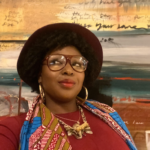Getting Sick Abroad: 5 Tips For Navigating Foreign Healthcare
During my very first week of living in Perugia, Italy, I got an ear infection. I shouldn’t have been surprised as I have a tendency to get sick at the most inconvenient of times. Initially, my ear had started to ache and after about 24 hours, I couldn’t feel it or hear from it anymore. I then faced a task that I was unfamiliar with: receiving health services in a foreign country.
Find yourself getting sick abroad? Here are five tips for navigating foreign health services:
Getting Sick Abroad: 5 Tips For Navigating Foreign Healthcare
1. Make sure you are familiar enough with the language to describe your problem.
If this is a potential problem, bring a translator with you to the appointment. As this was the beginning of my program, I had little to no Italian language experience. Luckily, a liaison through my school made the appointment for me and gave the doctor a general description of my ear infection. However, once at the doctor, it was hard to communicate. The doctor didn’t speak much English and we had to communicate through hand gestures and small phrases.
2. Bring cash with you to the appointment.
The fee for the doctor was 50 Euro, which I had to pay at the clinic. My school had informed me of this fee ahead of time so I was prepared with enough money. However, if they had not told me, I would have been in a difficult situation.
3. Visit a pharmacy before making a doctor’s appointment.
For minor illnesses, go to your local pharmacy. Someone at my school took me to the pharmacy before I made a doctor’s appointment in order to save money. Translating my problem to the pharmacist, I was able to receive ear drops.
Getting Sick Abroad: 5 Tips For Navigating Foreign Healthcare
4. Be sure to check the operating hours before you try to make an appointment.
Most clinics are closed on weekends. My ear infection worsened over the weekend, but I had to wait until Monday to schedule an appointment. Getting sick is certainly not fun when you have to wait an additional two to three days for the first possible slot opening during the work-week. Planning is key.
5. Know that most medicine is relatively cheap.
All in all, I spent much less on an antibiotics and anti-inflammatory powder than I did on the actual doctor’s visit. This was a pleasant surprise!








